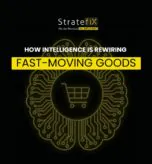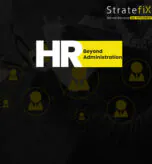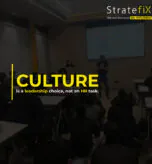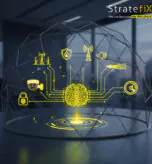The Indian Fast-Moving Consumer Goods (FMCG) sector is one of the country’s biggest economic forces and one of its most competitive markets. By FY 2025-26, it is projected to reach $211 billion, growing at a 14–15% CAGR, fueled by rapid urbanization, rural market expansion, and technology-enabled retail transformation.
In this evolving environment, brand dominance is being defined by two deeply interconnected capabilities: the ability to build strong, multi-channel market reach and the capacity to field agile, high-performing teams that can execute with precision.
The FMCG Channel Landscape
General Trade (GT) continues to be the undisputed powerhouse, accounting for over 80% of FMCG sales. Its strength lies in millions of kirana stores and neighborhood retailers that maintain a personal connection with their communities, especially in semi-urban and rural markets. These rural areas are a growth hotspot, with FMCG volumes rising 8.4% in Q4 FY25-26, more than triple the urban growth rate of 2.6%. While GT offers unmatched reach, it remains fragmented and low in digital adoption. Leading players are modernizing it by empowering field forces with mobile-ordering tools, tailoring SKUs to suit local purchasing power, and launching retailer loyalty schemes to secure long-term brand allegiance.
Modern Trade (MT) is the rising face of India’s organized retail, spanning supermarkets, hypermarkets, and retail chains that cater to urban and aspirational middle-class shoppers. MT offers structured merchandising, higher product visibility, and a platform for in-store promotions based on shopper analytics. The opportunity here lies in premium SKUs, customized offers, and brand storytelling through retail space. Yet, the challenges including high listing fees, competitive shelf placement, and strict compliance norms require strategic negotiation and strong retail relationships. Leaders in MT succeed by combining long-term shelf agreements with data-driven category management.
HORECA — the Hotels, Restaurants, and Cafés channel plays a crucial but often understated role in steady volume sales. Bulk and repeat orders from the hospitality and foodservice industries provide reliable cash flow. FMCG companies that excel here invest in dedicated account managers, develop products tailored to professional kitchens, and even co-create menu-ready solutions. Partnerships run deeper when brands offer value-added services such as chef training or co-branded menu presence, fostering strong mutual loyalty.
Bulk Cutting / Wholesale remains central to affordability-led distribution, especially in rural India and low-income urban localities. In this model, large quantities are sold to wholesalers who repackage them into smaller, budget-friendly packs. This approach is vital for price-sensitive consumers but comes with operational risks, such as quality loss during multiple handling stages and potential brand dilution. Companies with strict quality control processes, seasonal demand planning, and pricing discipline outperform others in this channel.
Digital & Quick Commerce is fast becoming a growth frontier. Platforms like Zepto, Blinkit, and BigBasket are redefining convenience, with most promising delivery within 10–15 minutes. 51% of FMCG leaders now rank e-commerce and Q-commerce as priority growth drivers. This space rewards those with optimized product listings, data-driven promotions, real-time inventory visibility, and high-efficiency logistics. The challenge lies in balancing rapid fulfilment and profitability in a highly competitive, discount-heavy environment.
Building Teams That Deliver Results
A strong channel strategy will only succeed when executed by capable, motivated teams. Recruitment should be tailored to channel-specific needs: GT sales managers benefit from grassroots market knowledge, MT account managers need sharp negotiation and merchandising skills, and digital trade managers must master analytics and rapid experimentation.
Sustained growth requires continuous training to keep sales and marketing teams aligned with evolving consumer expectations and technology trends. Field staff in GT must learn to work with digital ordering, MT teams should be skilled in managing data-led promotions, and digital teams need expertise in performance marketing platforms.
Companies that have invested in leadership coaching and technologically enabled sales workflows have seen measurable results GT shelf availability rising by 18% and MT sell-through increasing by 22% in just a year. These outcomes are driven by a culture of ownership, where employees are empowered to make decisions, measured on clear KPIs, and rewarded for initiative and results, not just effort. Cross-functional collaboration across GT, MT, HORECA, wholesale, and digital ensures faster market response and better resource allocation.
The Big FMCG Challenges and How to Overcome Them
FMCG leaders in India face a set of strategic challenges that, if not addressed, can erode competitiveness:
- Rural Growth Complexity: Fragmented geographies and distribution networks in fast-growing rural markets require decentralized strategies and micro-distribution models.
- Urban Demand Slowdown: Stagnation in cities can be countered by premium innovation, health-oriented SKUs, and sustainable packaging.
- Supply Chain Pressure: Raw material cost inflation and unpredictable seasonal surges call for AI-led demand prediction and flexible supply planning.
- Talent Wars: With high attrition in FMCG sales and marketing, retaining top performers through development programs and career pathing is critical.
- Seamless Digital Integration: Fully integrated omnichannel operations are essential before competitors dominate emerging spaces like Q-commerce.
Leadership Imperatives for 2025-26
The role of an FMCG leader in 2025-26 goes beyond managing daily operations it’s about orchestrating market presence strategically across every channel while future-proofing the organization. Rebalancing investments towards high-growth rural GT while deepening MT and digital capabilities will be key.
Digitization should go end-to-end, from predictive demand forecasting to automated replenishment and data-enabled sales planning. Portfolios must be segmented by market type: urban consumers drawn to premium, sustainable products versus rural buyers prioritizing value and essential goods. Finally, in a high-attrition environment, effective succession planning and leadership pipeline development will ensure business continuity and agility.
Market Outlook
The future of the Indian FMCG sector is both promising and competitive. By 2030, the market is expected to exceed $300 billion, with IMARC projecting $1 trillion by 2033 when accounting for broader consumer goods categories. Rural and semi-urban demand will remain the strongest volume driver, while urban markets will deliver value growth through premiumization, health-focused products, and sustainability-led innovations.
Smaller regional players will continue to disrupt through hyperlocal targeting, faster innovation cycles, and unique customer engagement, meaning established brands will need to guard their share by combining national scale with local agility.
At Stratefix Consulting, we specialize in bridging the gap between FMCG strategy and execution. Recognizing that a great strategy means little without flawless implementation, we partner with FMCG leaders as their trusted FMCG consultant to transform their growth ambitions into measurable business outcomes.
Our approach includes:
- Designing and executing FMCG consulting strategy tailored for multi-channel complexity — GT, MT, HORECA, wholesale, and digital commerce.
- Developing high-performance teams through targeted training, leadership coaching, and creating cultures of ownership essential to drive sustained results.
- Leveraging digital transformation services to embed predictive analytics, real-time sales tracking, and AI-driven supply chain optimization for agility.
- Facilitating business process re-engineering and operational excellence to improve productivity and market responsiveness.
- Building leadership pipelines and succession plans that future-proof organizations amidst rising talent challenges.
With a proven track record of over 550 projects across multiple sectors, including FMCG in India, Stratefix Consulting stands committed to partnering with FMCG companies ready to scale sustainably. We don’t just strategize we implement, measure, and refine to ensure your business stays ahead in a fiercely competitive market.
Let’s transform your growth plans for FY 2025-26 and beyond into market-leading performance. Contact Stratefix Consulting today to start the conversation.
Final Word for Leaders
In India’s FMCG market, channel reach opens the door to consumers, but team strength closes the deal. The most successful companies will be those that treat channel strategy and team capability as inseparable, investing equally in both to create resilient, growth-ready organizations.
The winning formula is simple in principle but difficult in practice: adapt quickly to market signals, equip teams with the right tools and insights, and empower them to take ownership of outcomes. In a space where speed will often win the sale, it’s ownership, discipline, and execution that will ultimately sustain market leadership.
“In FMCG, speed can win you today’s sale — but disciplined execution and team ownership will protect tomorrow’s market leadership.”







